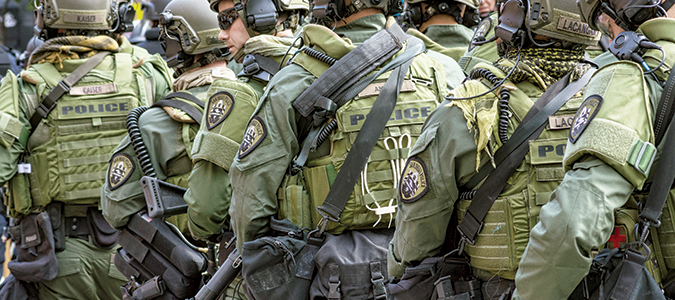
The Role of Body Armor in Modern Law Enforcement
Jul 25, 2024
Body armor is a critical component in the law enforcement toolkit, serving as a shield between officers and daily dangers. Over the years, the nature of threats has evolved dramatically, necessitating advancements in body armor technology and policy changes. This blog post explores the historical development, current trends, technology integration, and practical body armor applications in modern law enforcement.
Historical Perspective
The concept of body armor for law enforcement isn't new. Dating back to the early 20th century, officers in high-risk situations would wear steel breastplates akin to those used in warfare. However, these were heavy and impractical for everyday use. The invention of Kevlar in the 1960s marked a revolutionary change, providing adequate protection with much lighter weight. Since then, body armor has seen various iterations—each enhancing flexibility, comfort, and ballistic resistance. These innovations reflect the escalating arms race between law enforcement capabilities and criminal elements.
Current Trends
Today's law enforcement professionals face a landscape marked by increasing urban violence and evolving threats, including high-powered firearms and terror-related attacks. These challenges have pushed the development of body armor to prioritize ballistic protection and adaptability to various threat levels. For instance, many officers now wear vests that can be up armored with plates capable of stopping rifle rounds, a response to the increasing firepower they may encounter.
Policy changes have also accompanied these developments. For example, following the 2016 shooting in Dallas, Texas, where five officers were killed, many U.S. police departments started mandating the wear of body armor while on duty, reflecting an increased commitment to officer safety amidst rising assault rates against law enforcement.
Technology Integration
Integrating new technologies into body armor designs transforms how law enforcement personnel are protected. Modern vests are not only about stopping bullets; they are increasingly about enhancing the officer’s effectiveness and comfort. Features such as carrier systems that improve heat management help reduce the exhaustion of wearing heavy gear. Additionally, we see the incorporation of smart technologies, such as vests equipped with sensors that can monitor the wearer's health and stress levels or even signal when a vest has been pierced.
Advances in materials science have also led to the development of lighter yet more robust materials that provide superior protection without the bulk of older models, allowing officers greater mobility during critical situations.
Case Studies
Real-world applications and policy updates highlight the ongoing evolution of body armor. For instance, the Los Angeles Police Department (LAPD), one of the largest in the United States, recently upgraded its body armor standards to include vests that offer enhanced protection against rifle rounds. This change was influenced by an increasing number of incidents involving high-caliber weapons.
Another example is found in London, where following attacks involving edged weapons, the Metropolitan Police updated their protective gear to include stab-resistant features. This reflects a shift in recognizing the varied nature of threats beyond just firearms.
The role of body armor in law enforcement is more crucial than ever. As threats evolve, so must the technology and policies governing the protection of officers. This ongoing development is vital not only for the safety of law enforcement personnel but also for the communities they serve, ensuring that officers can respond effectively to threats without compromising their safety. As we continue to see advancements in materials and technology, the future of body armor looks poised to become even more integrated and responsive to the needs of law enforcement in the 21st century.
This exploration into the role of body armor in modern law enforcement reveals not just the technological advances but also the strategic importance of keeping our officers well-equipped and prepared for whatever challenges they might face on the front lines.
Protect Your Force with Custom Armor Group
At Custom Armor Group, we understand that the safety of law enforcement officers is paramount. Our state-of-the-art body armor solutions are designed with the latest ballistic and stab-resistant technology advancements to provide unmatched protection and comfort. Whether you're facing urban violence or tactical challenges, CAG's products are tailored to meet the specific needs of modern law enforcement agencies.
Don’t wait for the next threat to determine your level of preparedness. Contact Custom Armor Group today to learn more about our customizable body armor solutions and how we can help enhance the safety and effectiveness of your officers. Visit us at www.customarmorgroup.com or call us to schedule a consultation and see the difference proper protection makes.

